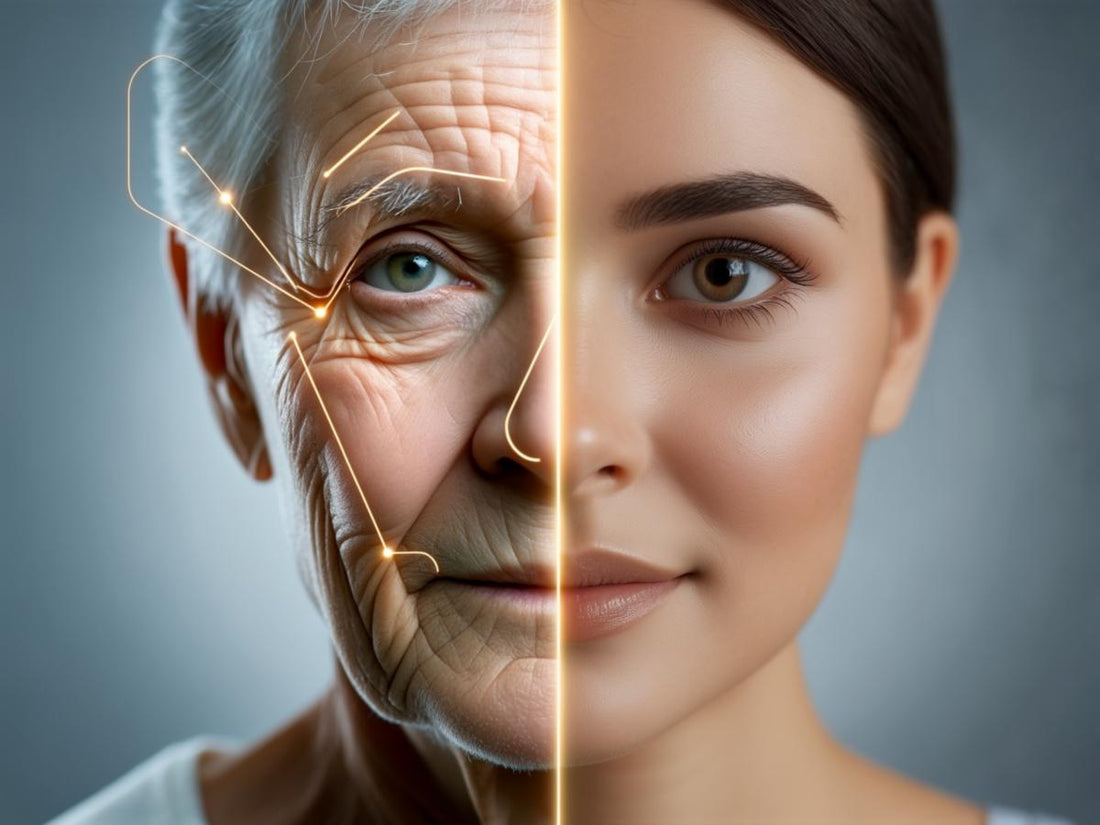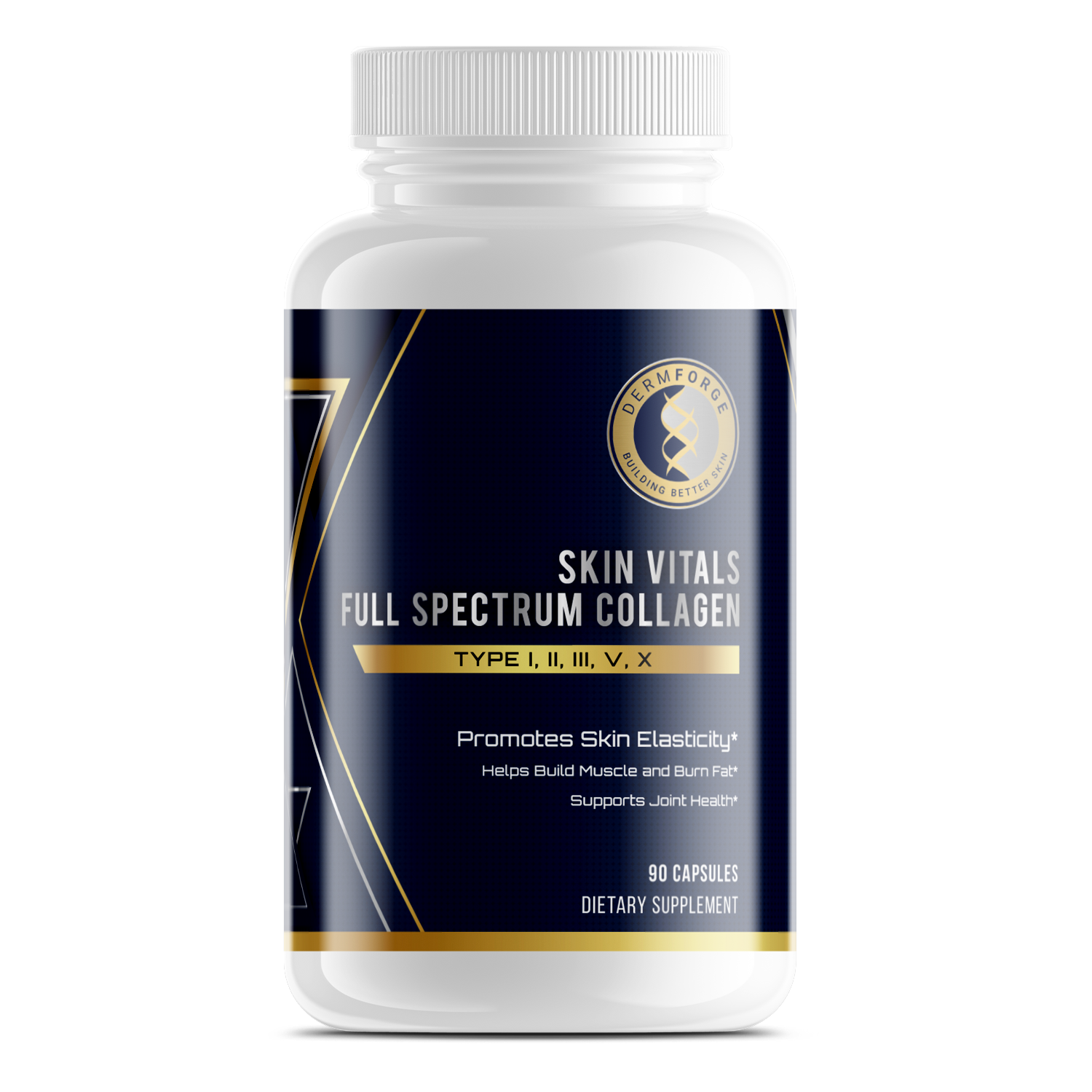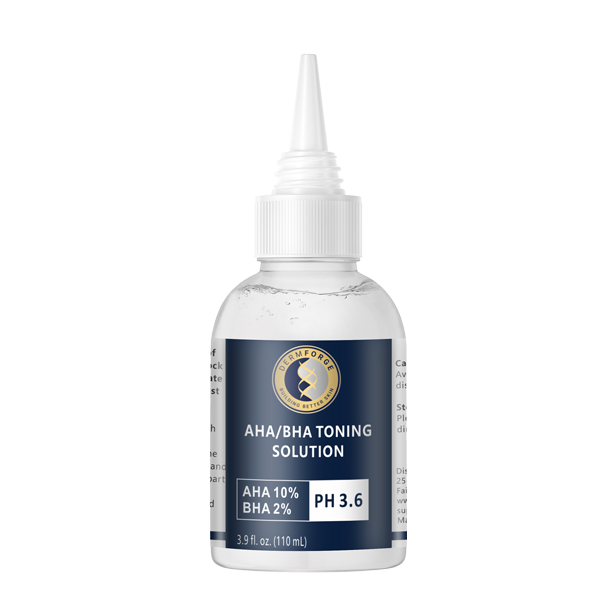As you age, understanding the science behind aging becomes essential. Adopting evidence-based anti-aging strategies can help you maintain health and vitality. Aging involves complex biological processes, including collagen loss, oxidative stress, and cellular damage. These factors contribute to visible signs of aging and overall health decline.
Intrinsic aging refers to the natural aging process determined by genetics. Extrinsic aging results from external factors like sun exposure, pollution, and lifestyle choices. Recognizing the distinction between these factors empowers you to make informed decisions about your health.
By focusing on evidence-based anti-aging methods, you can address both intrinsic and extrinsic aging factors. This approach promotes a healthier, more vibrant life as you grow older.
The Science of Aging: What Really Happens to Your Skin and Body
As we age, our bodies undergo various biological changes that manifest in our skin and overall health. Understanding these processes is essential for adopting evidence-based anti-aging strategies.
One primary factor in aging is collagen loss. Collagen, a structural protein, maintains skin's firmness and elasticity. Over time, collagen production decreases, leading to wrinkles and sagging skin. Additionally, oxidative stress plays a significant role. This occurs when there's an imbalance between free radicals and antioxidants in your body, resulting in cellular damage. Consequently, oxidative stress accelerates aging and contributes to various age-related conditions.
Aging is influenced by intrinsic and extrinsic factors. Intrinsic aging, also known as chronological aging, is the natural process determined by genetics and the passage of time. This form of aging leads to gradual skin thinning, reduced cell turnover, and diminished function. Extrinsic aging, on the other hand, results from external factors like sun exposure, smoking, and pollution. These elements can accelerate the aging process, leading to premature wrinkles, uneven pigmentation, and loss of skin elasticity.
By distinguishing between these aging factors and understanding the underlying biological processes, you can make informed decisions about your health. This knowledge empowers you to adopt evidence-based anti-aging interventions that address both intrinsic and extrinsic contributors to aging.
Proven Ingredients Backed by Clinical Research
In the realm of evidence-based anti-aging skincare, certain ingredients have consistently demonstrated efficacy through clinical research. Retinoids, peptides, antioxidants, and growth factors stand out among these. Retinoids, derivatives of vitamin A, are renowned for their ability to enhance skin renewal. They promote collagen production, leading to improved skin texture and reduced fine lines. Clinical studies have shown that retinoids can effectively diminish signs of aging, making them a cornerstone in anti-aging treatments.
Peptides, short chains of amino acids, play a pivotal role in maintaining skin's structural integrity. They signal the skin to produce more collagen and elastin, essential proteins for skin elasticity and firmness. Incorporating peptides into skincare routines has been associated with enhanced skin hydration and resilience. This leads to a more youthful appearance.
Antioxidants, such as vitamins C and E, combat oxidative stress by neutralizing free radicals. This protection prevents cellular damage and supports skin health. Regular use of antioxidant-rich products can result in brighter, more even-toned skin. Additionally, antioxidants contribute to the prevention of premature aging.
Growth factors are proteins that regulate cellular growth and differentiation. When applied topically, they can stimulate the production of collagen and elastin. This leads to improved skin elasticity and reduced wrinkle depth. Incorporating growth factors into skincare has shown promising results in rejuvenating aging skin.
Integrating these clinically validated ingredients into your skincare regimen can significantly enhance skin renewal, hydration, and elasticity. This approach not only addresses existing signs of aging but also fortifies the skin against future damage. By focusing on evidence-based anti-aging strategies, you can achieve healthier, more resilient skin.
The Role of Lifestyle and Nutrition in Anti-Aging
Your lifestyle choices significantly impact the aging process at the cellular level. Diet, sleep, and exercise play pivotal roles in maintaining cellular health and longevity.
A balanced diet rich in essential nutrients supports cellular function and combats oxidative stress. Regular consumption of omega-3 fatty acids, found in fatty fish like salmon, has been linked to reduced inflammation and improved heart health. Polyphenols, abundant in fruits and vegetables, offer antioxidant properties that protect cells from damage. Amino acids, the building blocks of proteins, are vital for tissue repair and regeneration. Incorporating these nutrients into your diet can promote healthier aging.
Quality sleep is another crucial factor in the aging process. During sleep, your body undergoes repair and maintenance processes at the cellular level. Adequate sleep helps regulate hormones, reduces inflammation, and supports immune function. Prioritizing restful sleep can therefore contribute to healthier aging.
Regular physical activity has been shown to positively influence cellular aging. Exercise enhances mitochondrial function, improves muscle mass, and boosts overall metabolic health. Engaging in consistent exercise routines can lead to more robust cellular health.
Integrating these lifestyle factors into your daily routine forms the foundation of evidence-based anti-aging strategies. By focusing on nutrition, sleep, and exercise, you can positively influence the aging process at the cellular level, promoting overall health and longevity.
Advanced Aesthetic Treatments: What Works and What Doesn’t
In the pursuit of youthful skin, advanced aesthetic treatments like laser therapy, microneedling, and radiofrequency (RF) treatments have gained prominence. Understanding their efficacy, based on scientific data, is essential for informed decisions.
Laser therapy utilizes focused light to target skin imperfections. However, expectations of dramatic results shortly after treatment are often unrealistic. Experts caution that while improvements occur, they may not be immediate or as pronounced as some claims suggest.
Microneedling involves creating micro-injuries in the skin to stimulate collagen production. When combined with radiofrequency energy, this method has shown significant improvements in skin tightening and texture. Studies report up to 75% improvement in skin laxity and rhytides three months post-treatment.
Radiofrequency treatments deliver energy to heat the dermis, promoting collagen remodeling. Clinical evaluations indicate 20% to 60% improvement in facial wrinkles and skin laxity after one to three sessions. Notably, these effects can persist for several months.
Despite these positive outcomes, misconceptions persist. Some believe that higher-priced treatments guarantee better results, which isn't always the case. The efficacy of a procedure depends on individual skin conditions and the practitioner's expertise, rather than cost alone.
Additionally, marketing exaggerations can mislead consumers. It's crucial to critically assess advertised claims and consult qualified professionals before undergoing treatments. This approach aligns with evidence-based anti-aging practices, ensuring safety and effectiveness.
In summary, while advanced aesthetic treatments offer promising results, it's vital to approach them with realistic expectations. Relying on scientific evidence and professional guidance will help you navigate the myriad options available, leading to informed choices about your skincare journey.
The Impact of Hormones on Aging and Skin Health
Hormonal fluctuations, notably during menopause and andropause, significantly influence skin health. These changes can lead to dryness, thinning, and reduced elasticity. During menopause, declining estrogen levels result in decreased collagen production and skin thickness, leading to dryness and wrinkles. Similarly, andropause in men involves reduced testosterone levels, which can decrease skin density and hydration.
Hormone Replacement Therapy (HRT) aims to mitigate these effects by replenishing diminished hormones. Some studies suggest HRT can improve skin hydration and elasticity in menopausal women. However, HRT carries potential risks, including an increased likelihood of certain cancers and cardiovascular issues. Therefore, it's crucial to consult healthcare professionals before considering HRT.
In men, testosterone therapy may address symptoms of andropause, potentially enhancing skin thickness and moisture. Nonetheless, the long-term safety of such treatments remains under investigation. Adopting evidence-based anti-aging strategies, such as maintaining a balanced diet, regular exercise, and proper skincare, can also support skin health during hormonal transitions.
Decoding Anti-Aging Product Claims: How to Spot Hype vs. Science
Navigating the world of anti-aging products can be daunting, with numerous claims vying for your attention. Understanding how to discern hype from science is essential for making informed choices.
Evaluating Product Labels and Ingredients
Begin by scrutinizing the ingredient list. Active components like retinol, hyaluronic acid, and peptides have documented benefits. However, the presence of these ingredients doesn't guarantee efficacy; their concentration and formulation matter. For instance, retinol is effective but can cause irritation if not properly formulated. Additionally, be cautious of products listing numerous ingredients without clear evidence supporting their combined use.
Assessing Clinical Studies
Reputable brands often conduct clinical trials to substantiate their claims. When evaluating these studies, consider their design and sample size. Randomized controlled trials with a significant number of participants provide more reliable data. Be wary of studies lacking peer review or those conducted in-house without third-party validation. Furthermore, ensure the outcomes measured align with the product's claims, such as improvements in wrinkle depth or skin elasticity.
Deciphering Marketing Language
Marketing language can be misleading. Terms like "clinically proven" or "dermatologist recommended" may not always reflect rigorous testing. Investigate the basis of these claims; for example, "clinically proven" should indicate results from well-designed clinical trials. Moreover, endorsements from professionals should be backed by documented evaluations, not just affiliations. Additionally, be cautious of exaggerated promises, such as "instant results," which are often unrealistic.
Identifying Reputable Brands
Reputable brands prioritize transparency and evidence-based anti-aging formulations. They provide clear information about their research and are forthcoming about potential side effects. Look for brands that publish their clinical findings in peer-reviewed journals and have certifications from recognized dermatological associations. Furthermore, consider the brand's history and customer feedback, as consistent positive reviews can indicate product reliability.
Avoiding Misleading Claims
To avoid falling for misleading claims, maintain a critical perspective. If a product's promises seem too good to be true, they likely are. Consulting with a dermatologist can provide personalized advice and help you navigate product claims effectively. Additionally, cross-referencing claims with reputable sources or clinical guidelines can offer further validation.
By critically assessing product labels, understanding clinical studies, and recognizing credible marketing, you can make informed decisions. This approach ensures your skincare choices are rooted in science rather than hype.
HealthySkin
Incorporating evidence-based anti-aging strategies into your daily routine can significantly enhance your overall well-being. By focusing on scientifically validated methods, you can make informed decisions that promote longevity and vitality.
Prioritizing a balanced diet rich in essential nutrients supports cellular health and combats oxidative stress. Regular physical activity, including both aerobic and resistance training, has been shown to improve muscle mass and cardiovascular function. Additionally, ensuring adequate sleep facilitates cellular repair and maintains cognitive function. These lifestyle choices collectively contribute to a healthier aging process.
Furthermore, staying informed about advancements in anti-aging research empowers you to adopt practices that align with your health goals. Consulting with healthcare professionals ensures that your personalized plan is both safe and effective. By embracing these evidence-based anti-aging approaches, you can proactively enhance your quality of life as you age.






